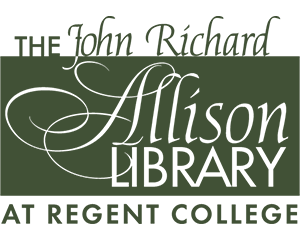Academic Integrity and Plagiarism
 Processing Request
Processing Request
Plagiarism is an academic offence in which someone presents, in whole or in part, the work of another person as his or her own work. Academic work properly involves the examination, critical evaluation, and utilization of contributions of other people. However, whenever someone uses the contributions of others in an academic setting, he or she must acknowledge the author of those contributions through footnotes or other acceptable referencing practices. Failure to do so constitutes plagiarism. Plagiarism can occur in written work (e.g., failure to acknowledge the use of other people’s words and ideas) and in non-written work (e.g., failure to acknowledge the use of other people’s images or creations in a work of art, or of other people’s words in an oral presentation).
All students at Regent College are expected to practise uncompromised integrity in all academic matters. Consequently, academic offences shall not be tolerated. For details on academic offences and penalties, see the Regent College Academic Catalogue on Academic Integrity, Probation, Appeals.
For guidance on avoiding plagiarism and tips on how to integrate sources see this helpful page and the following suggestions:
- Take careful notes on what you read and where you found the ideas. Keep track of your sources as you go.
- Acknowledge all sources from which you use ideas. This includes books, journal articles, websites, email communication, film, etc.
- Always cite:
- Direct quotations taken from sources – place quotation marks “ ” around direct quotes as you write them down.
- Paraphrased ideas and opinions taken from someone else's work.
- Summaries of ideas taken from someone else's work.
- Factual information, with the exception of anything that is considered common knowledge.
- When reviewing your paper, ask yourself: Is the idea or argument presented mine? Are the words my own? Can my work be clearly distinguished from the work of others?
You need to use quotation marks when taking the exact words from an original source; this is called quoting. You should quote material when you believe the way the original author expresses an idea is the most effective means of communicating the point you want to make. Take care not to overquote: your professor would rather hear your thoughts and analysis than someone else's.
If you want to borrow an idea from an author, but do not need his or her exact words, you should paraphrase instead of quoting. Paraphrasing involves more than just replacing certain key words and phrases – the structure of the work, or literary style of the original author, should also be altered.

